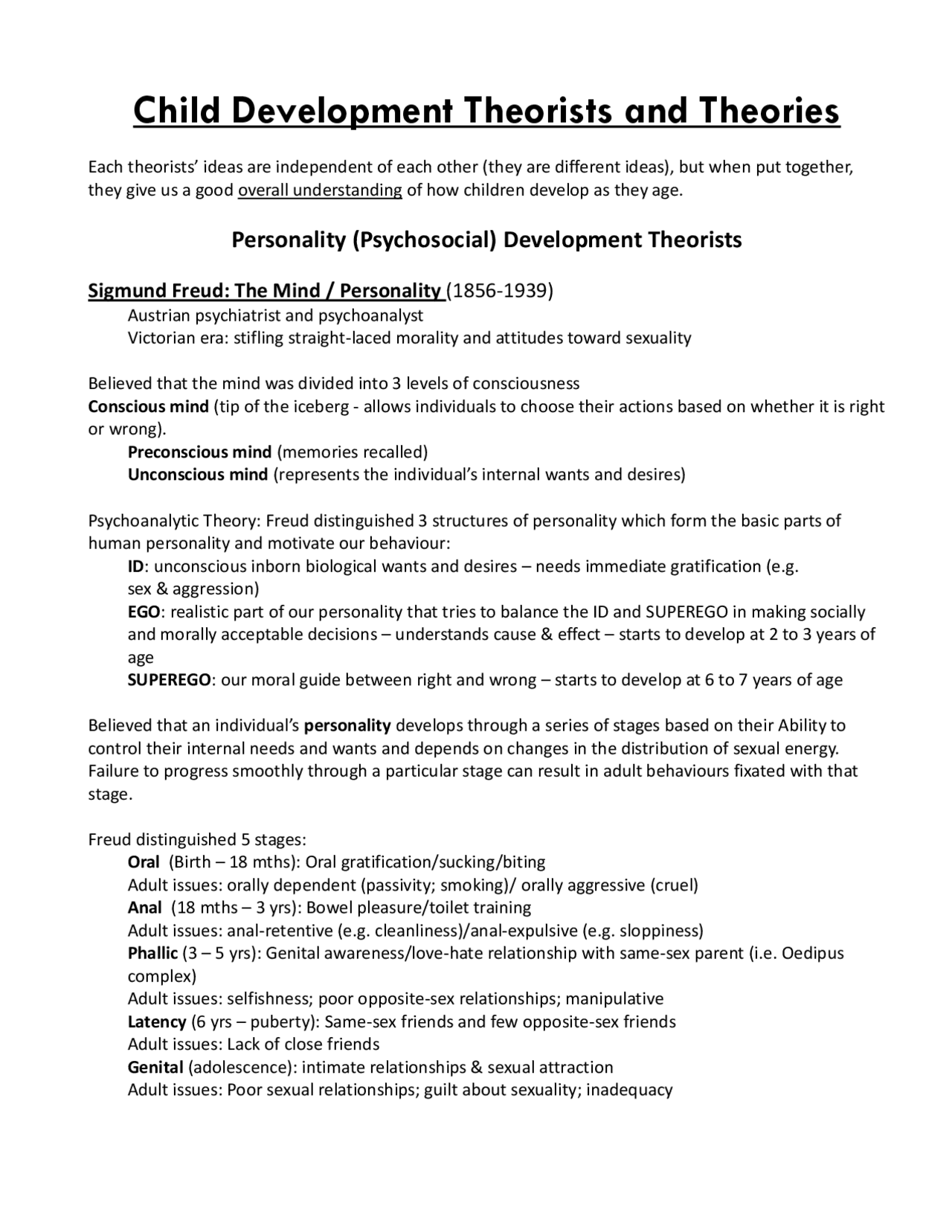
Child Development Theorists and Theories Cheat Sheet Cheat Sheet Childhood Development Docsity
Theories of Early Childhood Education continues to provide a comprehensive overview of the various theoretical perspectives in early childhood education from developmental psychology to critical studies, Piaget to Freire.

Early Childhood Theorists John Dewey Sense Parenting with Allana Robinson
Young children's play has been the object of hundreds of educational and psychological studies over the last half-century, an interest predominantly owed to two theories about its importance for learning: those of Jean Piaget (1896-1980) and Lev Semenovich Vygotsky (1896-1934) (Siraj-Blatchford et al., in Education and Child Psychology, 26(2):77-89, 2002; Thomas et al., in Australasian.
/child-development-theories-2795068-01-de70d302f2f94e60b00e57c59bd5984f.png)
7 of the BestKnown Theories of Child Development
The chapters in this book reflect on the major shifts in the views of early childhood thinkers and educators, who have contributed to contemporary theoretical frameworks pertaining to early childhood learning. The book also revisits and critically analyses the influence of developmental theories on early childhood education, starting in the 1890s with the work of G. Stanley Hall that.

Pin on Infographics
For many years, practitioners in early childhood education have assumed that this love of children was a primary component in the "quality equation." In other words, if you love young children enough, then you would provide highquality care and education for them.. learning theory, biologicalmaturational theory (e.g, Arnold Gesell.

Learning Theories in Education
Foundational child psychological theories have influenced universalistic understandings of children's learning and development in traditional educational spaces (Lewis and Taylor, 2019; Wilson and Peterson, 2006).For instance, educational professionals, like teachers, counselors, teacher educators, paraprofessionals, researchers, and administrators, who embrace constructivism believe that.
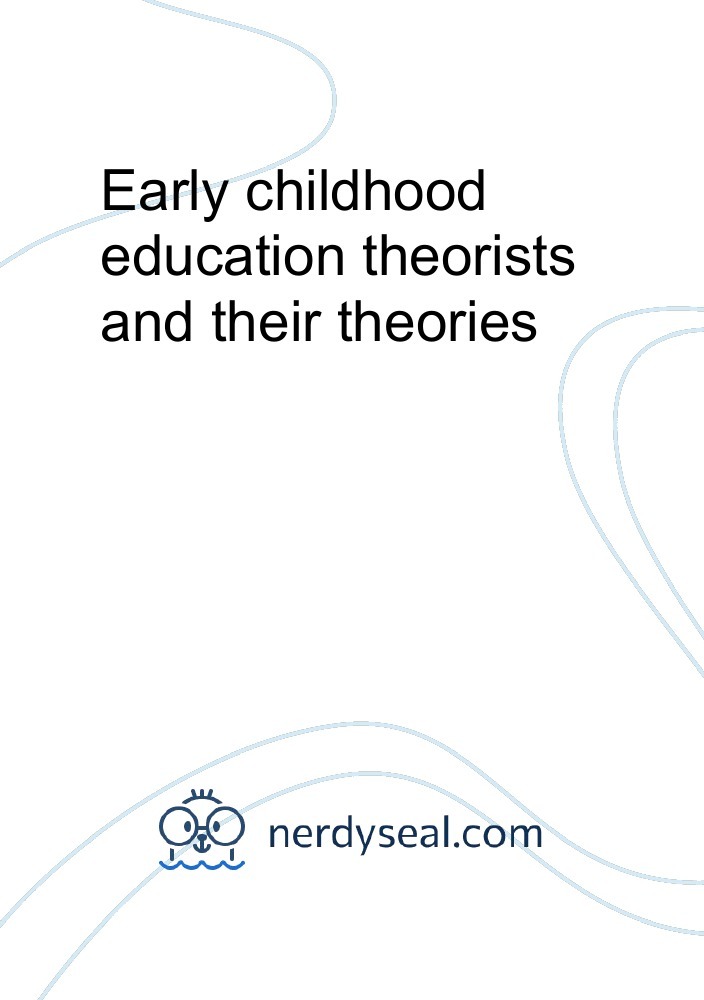
Early childhood education theorists and their theories 1521 Words NerdySeal
Early childhood educators may be familiar with a number of theorists from their studies or reading, such as Montessori, Piaget, Vygotsky, Steiner, Bowlby, Bronfenbrenner, Rogoff, or Foucault. Each of these theorists has a 'perspective' or position that may be quite different on the same issue or topic.

6 Education Theorists All Teachers Should Know Infographic Education Quotes, Kids Education
theories describe changes in the children's growth. The five theories that have had the most impact in early childhood education are summarized in Table 1. They are (1) maturationist, (2) constructivist, (3) behaviorist, (4) psychoanalytic, and (5) ecological. Each theory oers interpretations on the meaning of the
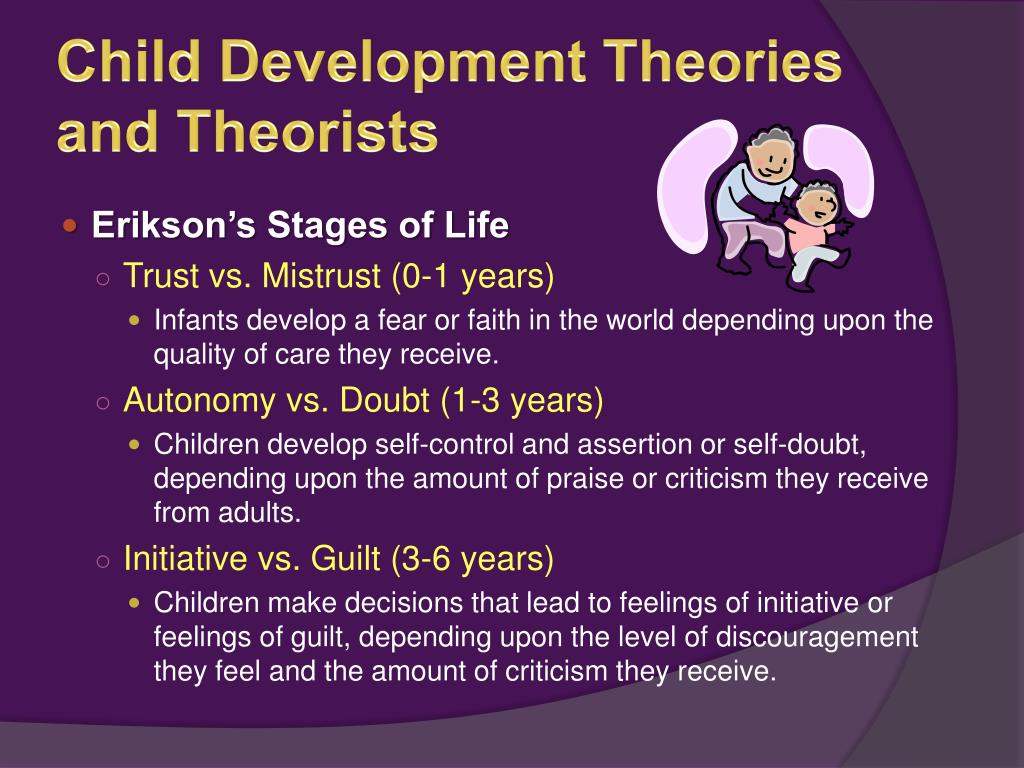
PPT Child Development Theories and Theorists PowerPoint Presentation ID2746060
Do an Advanced Search on the terms" Child Development," "Child Psychology,"and "Early Childhood"; or the names of individual theorists and topics. The Absorbent Mind by María Montessori Call Number: GENERAL [Lower Level] 152.272 M78 ISBN: 9781568492124 Publication Date: 1993-01-01 The Construction of Reality in the Child by Piaget Piaget, Jean
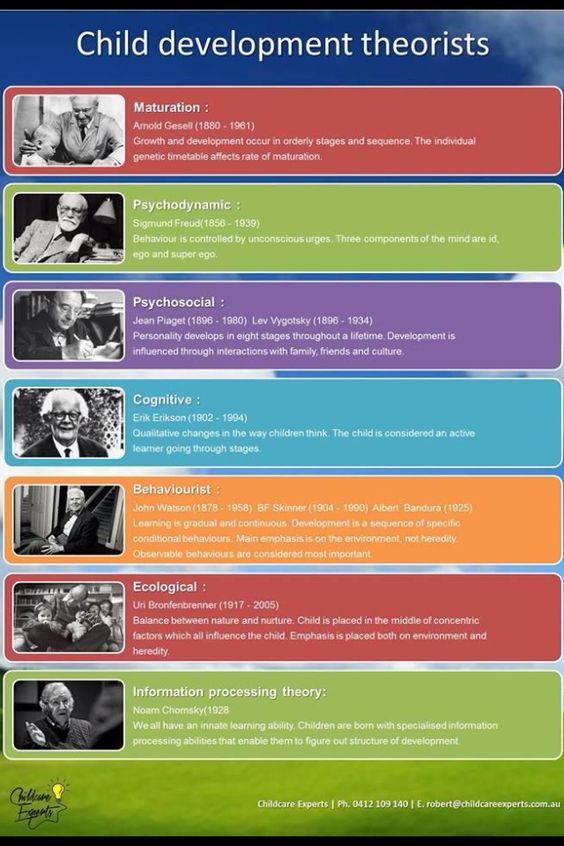
ECE Curriculum & Pedagogy Early childhood education theorists
Child development theories are focused on understanding and explaining how kids change throughout childhood. Some of these theories focus on the developmental milestones, or specific achievements children reach by a certain age.. Theories of child development and their impact on early childhood education and care. Early Childhood Educ J.

The Influence of Theorists and Pioneers on Early Childhood Education eBook by 9781000542530
History Importance Top Theories Child development theories focus on explaining how children change and grow over the course of childhood. These developmental theories center on various aspects of growth, including social, emotional, and cognitive development. The study of human development is a rich and varied subject.
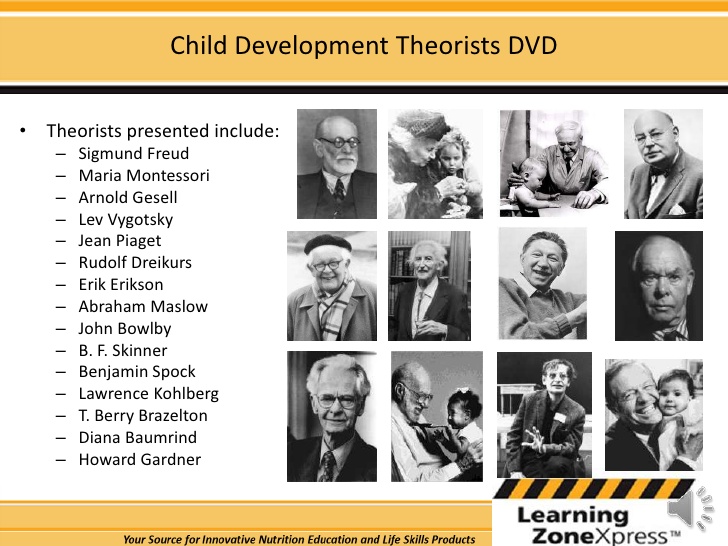
Early Childhood Education Theorists ELC Information Sheet lupon.gov.ph
Olivia N. Saracho. Major developmental theories been a resource to early childhood education researchers and educators. They help to explain how child development unfolds, sources of vulnerability and protection that influences child development, and how the course of development may be altered by prevention and intervention efforts.

Major Theorists Child development theories, Early childhood education curriculum, Child
Jean Piaget He discovered that all children's intellectual development progressed through four stages, beginning in infancy and are completed by adolescence. Thinking becomes more and more complex as the child ages. Each stage of thinking causes the child to see the world in a different way.

Theories of child development Key theorists Theories of
Child Development Theorists Theorists presented include Sigmund Freud, Maria Montessori, Arnold Gesell, Lev Vygotsky, Jean Piaget, Rudolf Dreikurs, Erik Erikson, Abraham Maslow, John Bowlby, B. F. Skinner, Benjamin Spock, Lawrence Kohlberg, T. Berry Brazelton, Diana Baumrind, and Howard Gardner.

Pin by Childcare Experts on Theorists of Child Development Child development theories, Early
Early Years Educator (EYE) provides expert guidance for early years professionals committed to enhancing their provision, developing their skill base and advancing their own continuing professional development. In addition to its new, fresh look and feel, EYE is designed to encourage the reader to engage with its content, to explore topics and.

Child Development Theorists Chart Well Known Theorists Theory Physica l Cogniti ve Emotion al
Growth & Development Theories Arnold Gesell, American psychologist Urie Bronfenbrenner, American psychologist and lecturer Cognitive (Intellectual) Development Theories Jean Piaget, Swiss biologist, psychologist, and educator Maria Montessori, Italian physician and educator Howard Gardner, American psychologist and educator Social Learning Theories
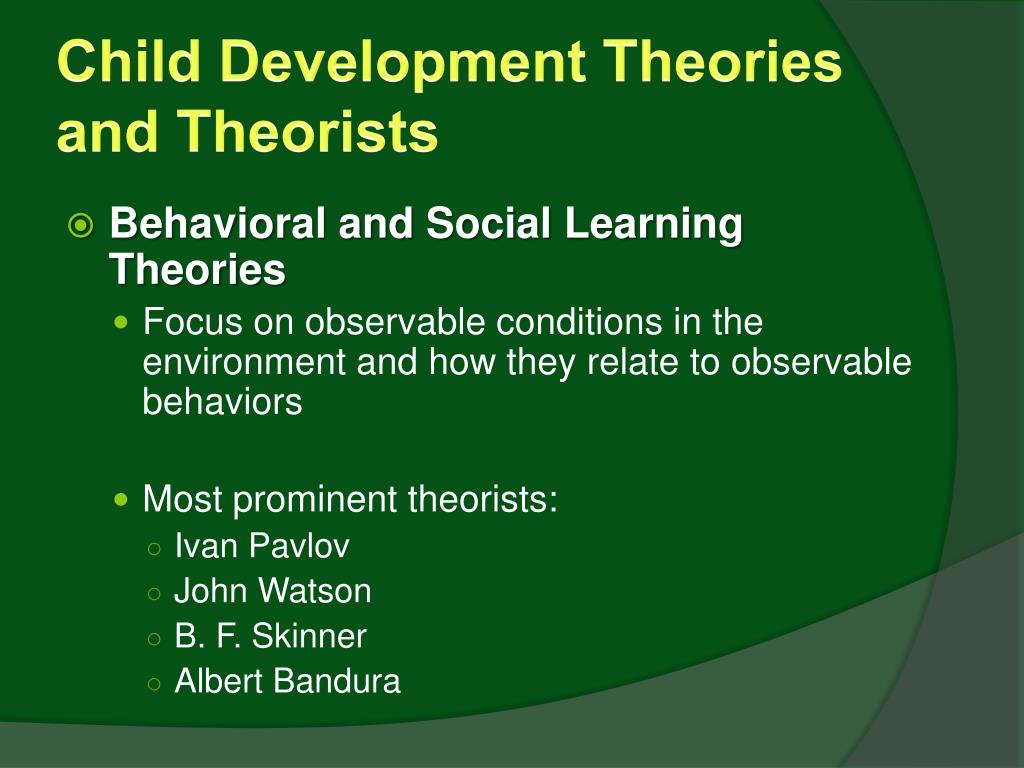
Albert bandura child development theory. Social Learning Theory of Albert Bandura Analysis
Piaget proposed four major stages of cognitive development, and called them (1) sensorimotor intelligence, (2) preoperational thinking, (3) concrete operational thinking, and (4) formal operational thinking. Each stage is correlated with an age period of childhood, but only approximately. Formal operational thinking appears in adolescence. 4.